A typical weekend for Wan Jiachen begins with a 40-minute subway ride through the bustling Futian Port, heading to the Shenzhen Second People's Hospital to get a check-up on his latest dental fillings.
“Dental service in Shenzhen is my first choice,” said Wan. He is a bank worker with a Shanghai household registration (hukou) and a Hong Kong identity card. He now lives in Hong Kong because of his new job.
The long journey crossing the border can be exhausting, but Wan said it is worth it.
“In Hong Kong, it has become more difficult to secure an appointment with a public dental clinic, and the price is unaffordable for ordinary wage earners,” he said.
In Shenzhen, he pays HK$100 to HK$200 for teeth cleaning, but in Hong Kong it’s around HK$800.
Wan is not the only Hong Kong resident traveling north to seek dental treatments. According to Shenzhen government figures, in 2023, Shenzhen provided 700,000 cases of medical treatment for Hong Kong residents.

Currently, Hong Kong has only 0.37 dentists per 1,000 people, which falls behind many countries worldwide, according to Lo Chung-Mau, the Secretary for Health of Hong Kong.
Limited local public and private healthcare resources is a major issue.
“The service quality and professionalism vary significantly between clinics,” said Daniel Wong, a 57-year-old local Hong Kong resident. “Hong Kong lacks private clinics. Their small scale is also a problem.”
Private clinics also tend to be more expensive. According to the clinic’s price list, Nixon Dental at Mongkok charges HK$6,000 for one-time full mouth root planing. For the clinic’s branch in Central, the same service costs even higher at HK$8,000.
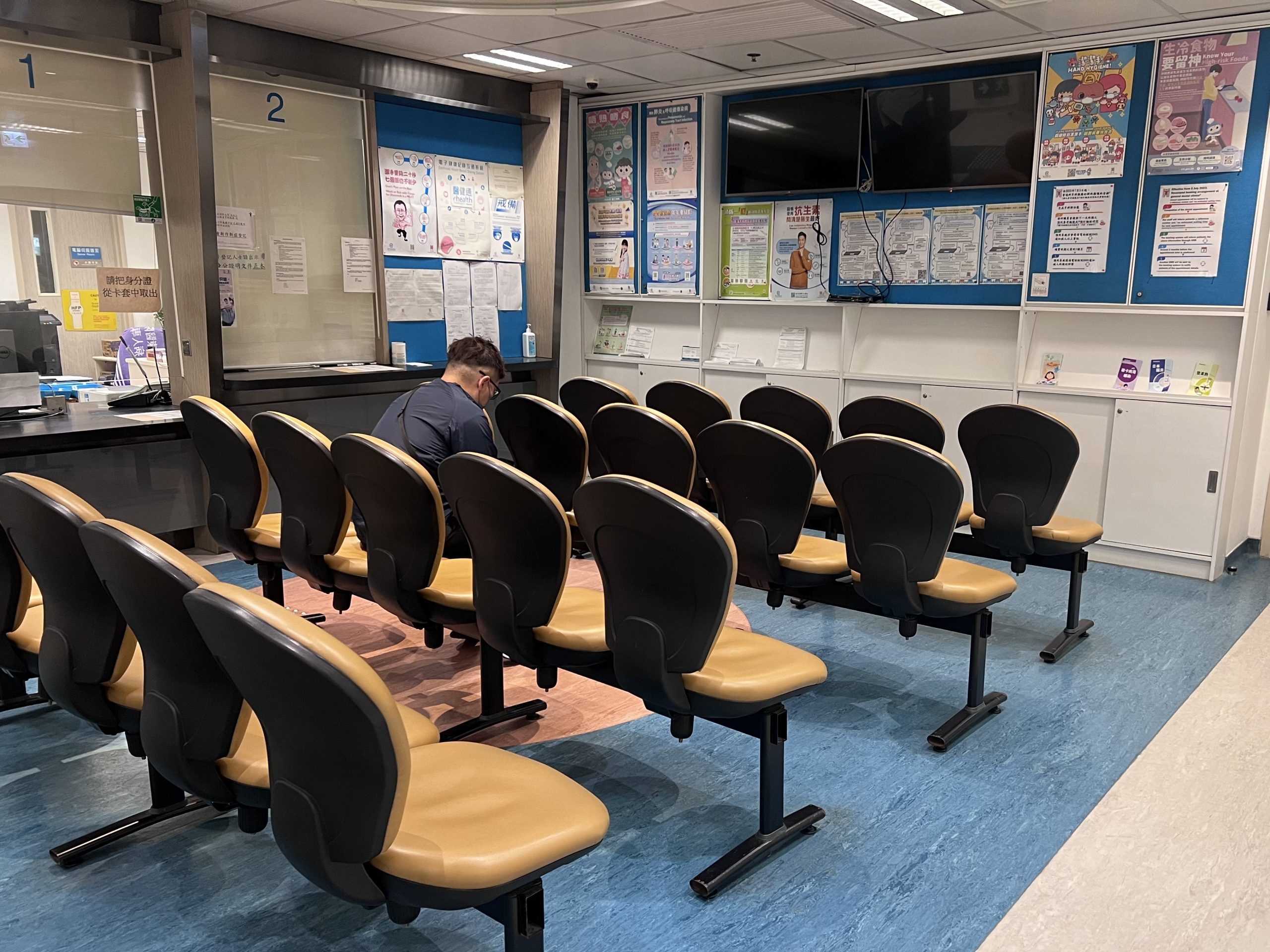
According to Hong Kong government statistics, as of December 31, 2023, Hong Kong has 2,876 registered dentists, with around 700 working in the public sector.
“The scarcity of dental resources is expected to persist until 2035,” Lo Chung-Mau said at the Legislative Council on April 24, 2024.
Cheaper services in Shenzhen and other mainland cities offer Hong Kong residents an accessible option.
“Most Hong Kong people who seek medical treatment in the mainland have limited financial means,” said Huang Jianping , the deputy director in Shenzhen Futian Women and Children Stomatology Hospital.
“My daughter’s orthodontic treatment was also much cheaper than in Hong Kong,” said Ben Shun, a 50-year-old Hong Kong resident. “Basic services like teeth cleaning and polishing in Shenzhen are about one third of the cost in Hong Kong, or even less,” he said.
Huang also said that fees charged by public hospitals and subsidies provided by medical insurance in the mainland are transparent and open, thereby reducing the financial burden on patients and gaining their trust.
Since early 2024, the Elderly Healthcare Voucher Scheme and the Hong Kong-Macau Residents Health Scheme launched by the Chinese Government allow elderly Hong Kong residents to use medical vouchers to offset dental expenses in Shenzhen or other cities within the Greater Bay Area.
“Hong Kong’s insurance subsidies cover little of the costs, while mainland China’s medical insurance can cover most of the expenses, making it much more cost-effective,” Wan said.
Since Wan has purchased Shanghai medical insurance, he can generally reimburse 70% of the cost.
According to the new Shanghai Medical Insurance Bureau, urban and rural residents can get 60%-90% reimbursement for medical bills that cost CNY500 (HK$450) or more. The exact amount depends on the age group and hospital level.
“In terms of price, for major treatments like fillings or extractions, I prefer to have them done on the mainland,” Wan said.
Booking an out-patient appointment in Hong Kong seems not as convenient as on the mainland either.
“In Hong Kong, booking a dental appointment typically requires a phone call, and same-day appointments are rarely available. Even with a scheduled time, patients may have to wait for 30 to 45 minutes before being seen,” said Qian Linjing, former Shanghai resident, now working in Hong Kong.
But on the mainland, online booking via WeChat makes it a lot more convenient. “You have to queue at a counter to get a number in a Hong Kong hospital,” Wan said, “but on the mainland you can make appointments and take numbers online or through self-service machines, saving a lot of waiting time.”
“Almost every hospital in the mainland has its own mini-programme for intelligent services, ” said Wong,“such as appointment scheduling, payments, sign-ins, doctor consultations, prescription pickups, and invoice generation, which are all self-service.”
Most of the first level hospitals in mainland China have launched their e-service system on their official WeChat account, enabling patients to access online appointment registration, payment, and medical examination results.
At Shenzhen Second People's Hospital for example, with a click on the "Appointment" button, users will be redirected to a more detailed registration page where they can select the hospital district and department according to their preferences and needs.
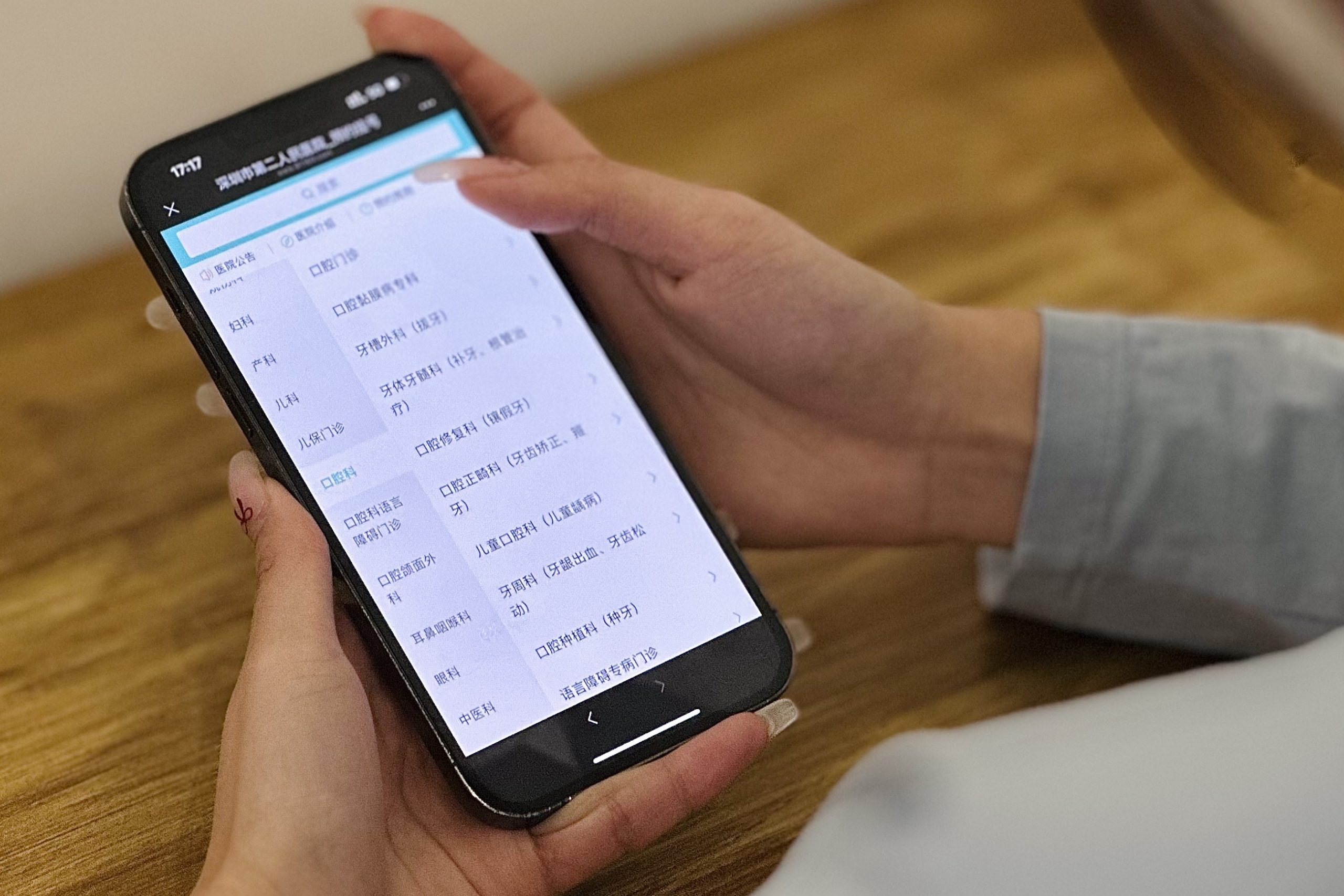
“Mainland hospital mini-programmes now include new functions like appointment reminders, payment options, insurance links, and even parking fees or invoices,” said Shun, “which is pretty much a one-stop shop”.
But Shun said these additional smart services are not always friendly to Hong Kong residents, “I hope these can be further improved.”
Wong acknowledged that Hong Kong’s smart healthcare services are“still in the early stages of implementation.”
“Hong Kong’s e-systems like eHealth, which allows medical records to be shared between public and private healthcare providers, are superior to similar systems in the mainland,” said Wong.
There are concerns, however, on the quality of medical services on the mainland.
Wong said he wouldn’t go to any dental clinic other than a first-level hospital on the mainland. “I worry about the quality of the service,” he said.
He once attended a private hospital in mainland China where a doctor ordered drugs directly from a pharmaceutical company without his consent and demanded payment.
Though he could avoid the 300 yuan fee for the specialist’s consultation, the problem of drug quality and surveillance arose. “It was really a bad experience, the operation is not standard at all,” he said.
“I ultimately refused because passing the normal procedures of the hospital is not a guarantee of quality for either the medication or the service,” Wong said. “This was the first time I encountered a doctor trying to make a private deal with a patient.”
Wang Feng, Clinical Associate Professor in Oral and Maxillofacial Surgery of Hong Kong University Faculty of Dentistry, said that one reason for the difference in quality is the higher standard of dental education in Hong Kong.
“In Hong Kong, only the University of Hong Kong offers dental courses. Its overall education and training quality is high,” she said. “In Mainland, there are many dental colleges with significant disparities in quality, which affects the level of expertise and clinical practice of dentists.”
Wang added that, compared to the mainland, where dental students can start practicing right after graduation, Hong Kong guarantees elite education and ensures that students receive six years of training before they can begin practicing, which results in a higher standard of care.
However, Wan believed that most of the hospitals, especially the first level hospital’s medical quality remains reliable in mainland China.
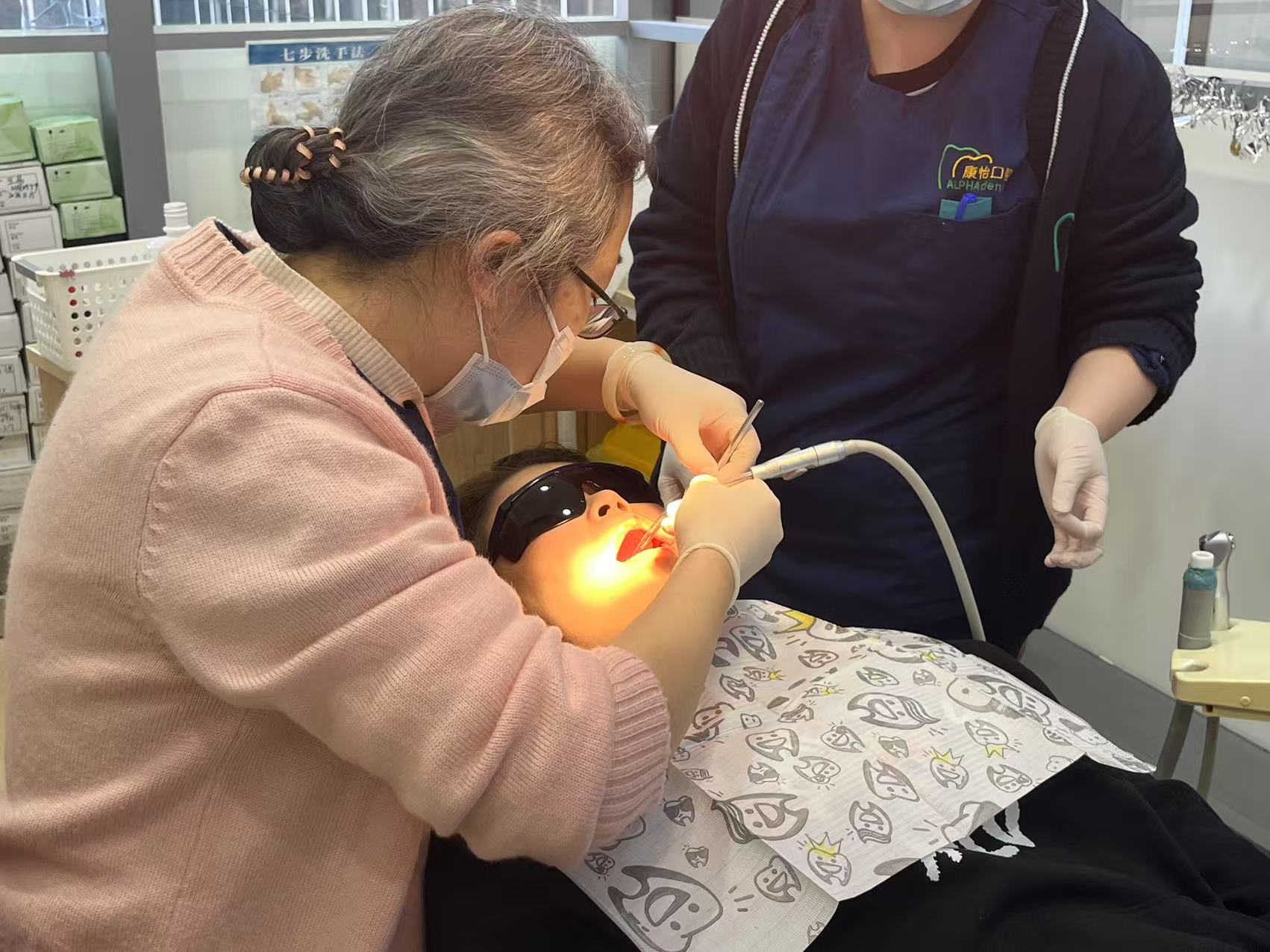
“While the devices and service attitude in Hong Kong dental clinics are better, I have not had any technical issues during my visits to Mainland hospitals, aside from occasional disorder in the hospital environment,” he said.
Qian shared the same idea. “The doctors on the Chinese Mainland are actually quite professional and experienced, especially for serious diseases.” But she said that the medical treatment environment and service in Hong Kong are beyond reproach.
For Qian and Wan, staying in Hong Kong or travelling north to the Mainland for dental treatment is not really an either-or choice. For them, Hong Kong's dentistry is expensive but the service is impeccable, while the Mainland may not be as good as Hong Kong in terms of medical order and environment, but the doctors are experienced and affordable.
When it came to their future dental healthcare plans, both of them coincidentally said, “Hong Kong for minor illnesses and the mainland for major ones.”
《The Young Reporter》
The Young Reporter (TYR) started as a newspaper in 1969. Today, it is published across multiple media platforms and updated constantly to bring the latest news and analyses to its readers.
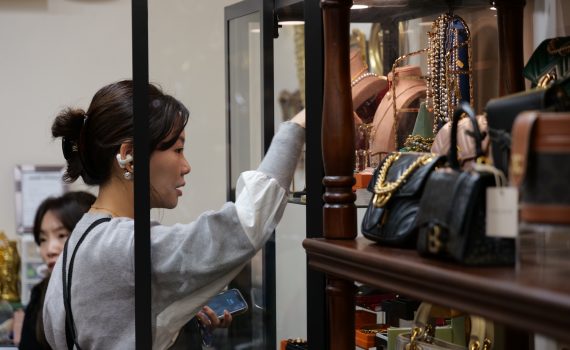
Luxury bags and wedding gowns lead the rental fashion craze
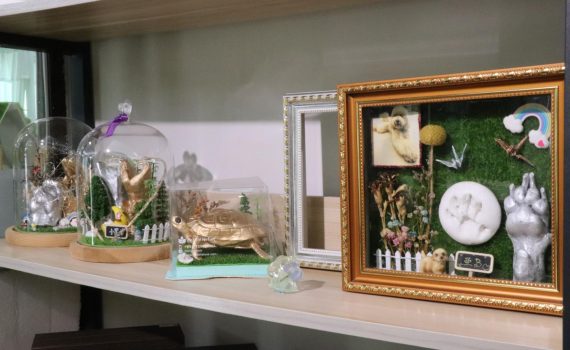
The cost of bidding farewell to pets




Comments